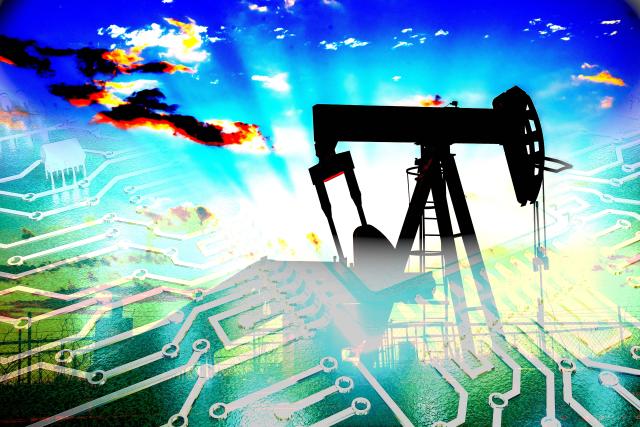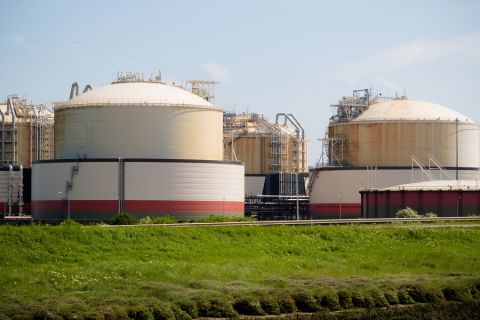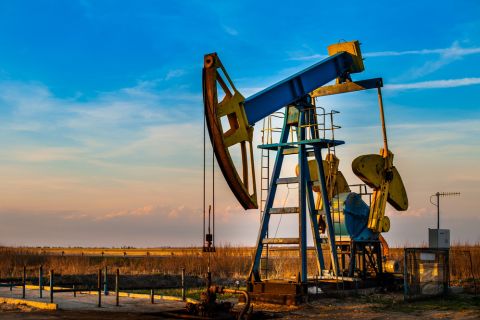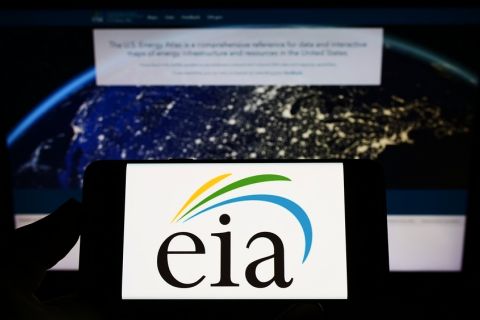
HOUSTON—Oil and gas was not born in the digital age, but the industry is adapting to the big change.
In particular, pushing machine learning into Chesapeake Energy’s E&P operations has changed the company’s view on the technology, said its senior data scientist Afshean Talasaz.
“Machine learning did have a top and bottom-line impact which was very successful, but the way we chose to collaborate interdisciplinary between engineering, geology and the field really helped transform the way that we thought about solving problems with machine learning,” Talasaz said during a panel discussion at the Energy Conference Network’s Machine Learning in Oil & Gas Conference on April 17.
Connecting the company’s analytics team with its lease operators in the field, Talasaz said, was key to successfully integrating machine learning into Chesapeake. This cross collaboration enabled the company to hone in on detecting hydrates and well performance issues, which he said are two focal points for Chesapeake.
“When you collaborate across departments with different disciplines and perspectives, what can be achieved is sort of outsized if it was simply in just one department,” he added.
Organizational tradition and the threat of human replacement have been credited for some industry resistance to the digital transformation. To address this, there must be a cultural and managerial shift, said Hani Eishahawi, digitalization lead of deepwater technologies for Royal Dutch Shell Plc.
“What you really want to aspire to, in addition to transformation, is to have your experts and practitioners understand what the role of digital tools would be,” Eishahawi said. “Part of why this is hard is because in the process of doing that, you’re actually moving a lot of the friction that has risen from largely linear processes that we use in our industry.”
“The difficulty usually comes in your middle management layers because they can see it as threat, they don’t understand it and there’s also a generational divide. All those things combined cause a high failure rate. Nonetheless, the opportunity is so large that you can’t really walk away from it,” he added.
In agreeance, Talasaz added that the approach to machine learning often offers a disregard to people and that is a huge misstep toward the transition. Thinking about the technology in context of what people are trying to achieve, he said “successfully abstracting the technology away from individuals and only using the parts that help people accomplish their goals, I think, is one of the key factors especially in the oil and gas space.”
Panelist Rajiv Shah, DataRobot’s data scientist, and Talasaz agreed that the ultimate goal should be driving value to the organization from data science and machine learning.
“We actually go through an economic assessment to understand how doing technological projects are going to add value to either the top or bottom line of our organization. That’s how we prioritize everything we do; it’s fully based off of value. We’re not there to develop new machine learning algorithms just for the sake of doing it. Our technology strategy is to enable our business,” Talasaz said.
Shah said to have a structured process when thinking about data and machine learning. “We don’t want to spend time doing experiments. We want to make sure that what we’re doing has some business value to the organization.”
But the issue around collecting and maintaining quality data in the oil and gas space for machine learning is still a challenge, according to Talasaz.
“Machine learning is like a Ferrari and data is like a road. Everybody wants to go and look at the Ferrari, get in and rev up the engine. But once you want to take it out on the road—if your data is like a dirt road with a bunch of potholes in it—the best you’re about to do is coast, probably bust an axle and be out of $30,000 to get it fixed,” he illustrated.
The excitement around paving the road (creating quality data), he said, should grow so companies can really see how that Ferrari goes.
Mary Holcomb can be reached at mholcomb@hartenergy.com.
Recommended Reading
Exxon’s Payara Hits 220,000 bbl/d Ceiling in Just Three Months
2024-02-05 - ExxonMobil Corp.’s third development offshore Guyana in the Stabroek Block — the Payara project— reached its nameplate production capacity of 220,000 bbl/d in January 2024, less than three months after commencing production and ahead of schedule.
Venture Global, Grain LNG Ink Deal to Provide LNG to UK
2024-02-05 - Under the agreement, Venture Global will have the ability to access 3 million tonnes per annum of LNG storage and regasification capacity at the Isle of Grain LNG terminal.
What's Affecting Oil Prices This Week? (Feb. 5, 2024)
2024-02-05 - Stratas Advisors says the U.S.’ response (so far) to the recent attack on U.S. troops has been measured without direct confrontation of Iran, which reduces the possibility of oil flows being disrupted.
McKinsey: US Output Hinges on E&P Capital Discipline, Permian Well Trends
2024-02-07 - U.S. oil production reached record levels to close out 2023. But the future of U.S. output hinges on E&P capital discipline and well-productivity trends in the Permian Basin, according to McKinsey & Co.
EIA: Oil Prices Could Move Up as Global Tensions Threaten Crude Supply
2024-02-07 - Geopolitical tensions in the Middle East and ongoing risks that threaten global supply have experts questioning where oil prices will move next.





